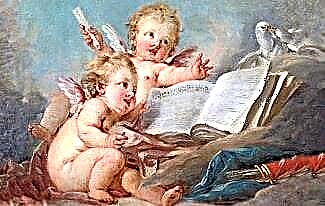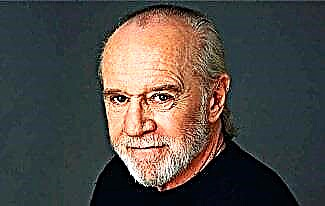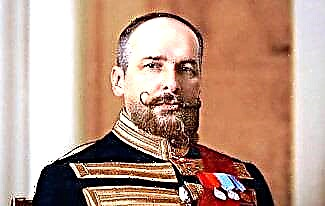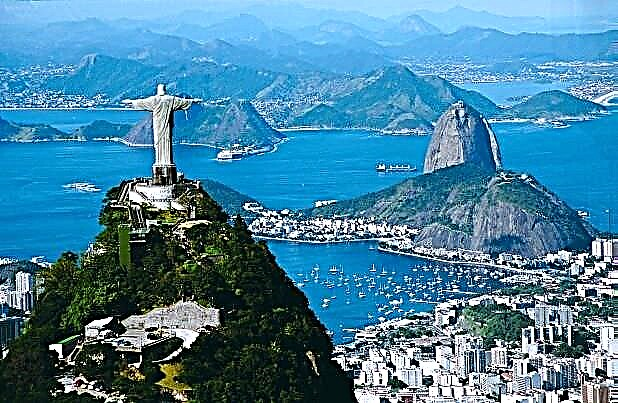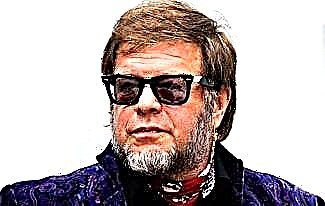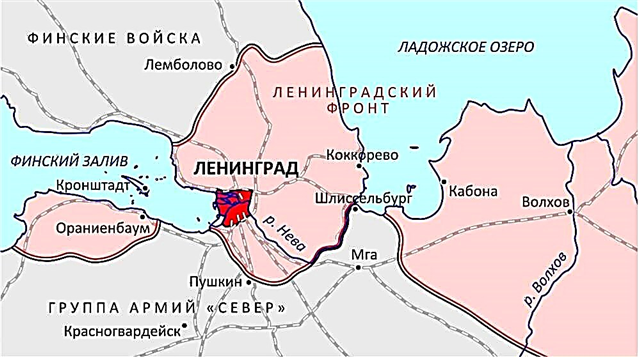In fact, the everyday life of any person, regardless of his property or social status, is a constant choice of the lesser of two evils. Dragging on a hated job or drinking beer while watching TV. Fight for a career advancement with a solid increase in salary or stay in the old place in the existing team. Annex Crimea, knowing that they will not pat it on the head, or close our eyes to the very possible death of thousands of compatriots.
The life of Alexander Nevsky (1220 - 1263) also passed in a series of such elections. The Russian prince constantly faced the hardest dilemmas. From the west, knights of the Cross rolled, who executed their own fellow believers in thousands. In the east, steppe dwellers were constantly on duty, who did not plunder Russia only when they knew that the Russians had not yet bred especially, and there was still nothing much to take from them.

The actions of Alexander Nevsky, his policy, if we consider each case separately from the general context, give rise to criticism and questions to a supporter of almost any point of view, from Westerners to patriots. Why did he smash the various carriers of European civilization and immediately went to bow to the Horde? Why did he use a whip, and sometimes a sword, to rewrite the Novgorodians and make them pay tribute? After all, Novgorod, as critics emphasize, was never captured by the Tatars! And the bad Alexander, instead of handing over the city to strangers who would simply destroy the stronghold of Russian democracy, paid tribute to the Tatars. Now the descendants of those Novgorodians who, at the first danger, called for the help of any more or less serious prince, in order to immediately expel him when the danger was exhausted, tell how bravely the fathers fought for democracy, that is, for the right to never pay anything to anyone. receive military protection.

Lifetime portraits from Alexander Nevsky were not painted, therefore most often the prince is represented in the image of the hero Nikolai Cherkassky in the film "Alexander Nevsky"
The policy of Alexander Nevsky was distinguished by exceptional pragmatism. Where you need to - endure. Where possible - negotiate. Where to fight - to beat so that the opponent does not rise. Alexander organized the victory on Lake Peipsi more than 100 years before the publicized battles at Crécy and Poitiers, after which the knights-iron lumberjacks of a high degree of nobility were driven by commoners across Europe with rags and rags of varying degrees of freshness. Forces life for the sake of the people's survival to bow their neck before the army of the eastern thousanders - will have to. Alexander hardly thought about his future place in history. He was destined to spend at least half of his short life on endless journeys from West to East. Moreover, in the rate of the khans it was necessary to sit when a month, and when a year. The position sometimes obliged, and when it demanded, risk one's life for the sake of the subject lands.
1. Already the childhood of Prince Alexander, the son of the restless prince Yaroslav Vsevolodovich and the grandson of Vsevolod the Big Nest, has shown that the boy does not have to wait for a quiet life. No sooner had little Alexander been mowed and ordained as a warrior - as in the east the Russian army suffered a deafening defeat in the battle on Kalka, and civilizers with crosses on their cloaks invaded Russia from the west. One of the most difficult periods of Russian history was approaching.
2. Alexander learned the delights of democratic rule at the age of eight, when he and his brother, accompanied by an uncle, an educator, had to hastily flee from Novgorod. In the city, another spontaneous expression of the will of the masses began with the accompanying murders, first of the "princely people", and then of their own, Novgorodians, from those who are richer. The unrest was caused by hunger. The Novgorodians did not bother to stock up grain, although it was transported through Novgorod by millions of poods, nor by the security of communications - as soon as the dashing people or the interventionists cut off a couple of supply routes, problems began in Novgorod. Moreover, this was far from the first and not the last case, but they gave little money to hired princes and only in case of obvious danger.

In the foreground is the process of democratic expression of will in Novgorod
3. Yaroslav was not particularly in a hurry to teach Alexander - he was the youngest son, and the main attention was paid just to Fedor. However, at the age of 11, just before his wedding (the princes were married very early in order to create and strengthen dynastic ties) Fyodor died, and 10-year-old Alexander became the “heir to the throne”.
4. Alexander's independent activity began at the age of 16, when his father appointed him governor of Novgorod. Prior to this time, the young man managed to take part in a campaign to the north-west, during which Yaroslav's army defeated a detachment of knights, which inadvertently moved too far south. In addition, the prince's squad defeated several Lithuanian robber bands. The baptism of fire of Alexander took place even before he received power.
5. During the campaign of 1238, the Mongol-Tatar army did not reach Novgorod just over 100 kilometers. The city and Alexander were saved by mudslides and the fear of the invaders to break too far from the supply bases - in the Novgorod region, as you know, practically no bread grows. The city was supplied with food from the south. If the nomads had decided to move further north, Novgorod, most likely, would have been taken and plundered, which had previously happened to Ryazan and Vladimir.

Mongol-Tatars invasions. Arc in the north - their maximum approach to Novgorod
6. 1238 was a catastrophic year not only for Russia, but also for the clan of the descendants of Vsevolod the Big Nest. Many princes died and were taken prisoner. Alexander's father Yaroslav became the Grand Duke of Vladimir, and the young man received Tver and Dmitrov as an appendage to Novgorod.
7. At the age of 19, Alexander married the daughter of the Polotsk prince Bryacheslav, Alexandra. Subsequently, the namesake couple had four sons and a daughter. Along with the wedding, the prince founded a fortress on the Shelon River, which protected the path to Novgorod from the west.
8. Alexander won his first independent military victory on July 15, 1240. A sudden attack on the international army, led by the Swedes, allowed the Novgorodians and the princely squad to completely defeat the enemy at the confluence of the Neva and Izhora. While Alexander's cavalry was fighting a part of the Swedes, the Russian infantrymen were able to break through to the enemy ships and did not allow the knights stationed on them to land on the shore. The case ended with the classic defeat of the enemy in parts. Having barely managed to return to Novgorod, Alexander learned that the Livonians took advantage of the betrayal of some Pskovites and captured the city. When the prince began to gather an army again, the boyars, who did not want to bear new expenses, opposed this. Alexander, without thinking twice, resigned and left for Pereyaslavl.

Neva battle
9. A certain voivode Birger deserves special mention in connection with the defeat of the Swedes. The Swedish colonel, who was seriously wounded in the face, quickly fled the battlefield, leaving the chroniclers to paint their exploits. With all due respect to Birger, his main feat, according to democratic historians, is that he was not on the Neva. Otherwise, Alexander Nevsky would certainly ...
10. The independence of Novgorod lasted for about six months. Hearing about what the crusaders were doing in Pskov, the Novgorodians apparently decided that democracy is good, but freedom is more expensive. They again called Alexander to the principality. The prince accepted the offer only on the second attempt, and the Novgorodians had to fork out. But during the rapid campaign of 1241, Alexander defeated the knights, captured and destroyed the fortress of Koporye, which significantly demoralized the crusaders. In this campaign, another feature of the military leader's talent of Alexander Nevsky was manifested: he attacked the knights, as they would now say, at the deployment stage, not allowing the enemy command to deal with the constantly arriving reinforcements.
11. Saturday 5 April 1242 became a significant day in Russian history. On this day, the Russian army under the command of Alexander Nevsky completely defeated the knight-dogs. And again, the victory was achieved with relatively little blood at the expense of military leadership. Alexander competently placed foot regiments and ambush cavalry. When the famous knightly wedge-pig got stuck in the order of the infantrymen, he was attacked from all sides. For the first time on the battlefields of Europe, tactical encirclement of the enemy and the pursuit of that part of it that did not fall into the "cauldron" were organized. The battle was dubbed the Battle of Ice.

12. Alexander finally established himself in the role of ruler after his warriors inflicted two heavy defeats on the Lithuanians. By 1246 Novgorod got rid of all the dangers except the Horde. He was repeatedly summoned to the Horde, but Alexander was playing for time. Most likely, he was waiting for the emissaries of the Pope. They arrived in Novgorod in the summer of 1248. In the letter, the pontiff suggested that Alexander and Russia convert to Catholicism, promising practically nothing in return. Alexander rejected the Pope's proposal. He only had to go to the Horde.
13. At Batu's headquarters, Alexander narrowly escaped execution. As a sign of humility, all visitors to Batu had to walk between two idols and kneel four times when they saw Batu. Alexander refused to pass between the idols. He knelt down, but at the same time he constantly repeated that he was kneeling not before Batu, but before God. Batu killed princes for much lesser sins. But he forgave Alexander and sent him to Karakorum, where he received a shortcut to Kiev and Novgorod.

At Batu's rate
14. Information that Batu made Alexander his adopted son should most likely be left on the conscience of Nikolai Gumilyov, who disseminated them. Alexander could have fraternized with Batu's son Sartak - then it was in the order of things - they exchanged drops of blood around the fire, drank from the same goblet, here are the brothers. But such fraternization did not mean in any way that Batu recognized the Russian prince as his son. In any case, the sources on adoption are silent.
15. Sometimes in the biographies of Alexander Nevsky one can find passages in the spirit: “He never raised a sword against a Russian man” or “He never shed Russian blood”. This is not true. Alexander did not particularly hesitate in choosing the means to achieve the goal, and even more so he did not pay attention to the nationality of his enemies. And when most of the princely elite conspired to go under the arm of the Pope, Alexander immediately went to the Horde and brought with him an army that went down in history as the “Nevryuev army” - named after the commander of the Tatars, the voivode. Rat brought order in the Russian lands by methods corresponding to the XIII century.
16. Alexander became the Grand Duke under the patronage of Batu. At that moment, Alexander's plans were neither understood nor accepted by anyone except Metropolitan Kirill. Even the siblings went against the elder. The princes took a strange and hopeless position: you cannot submit to the Horde, and you cannot fight it. Alexander's brother Andrey pathetically exclaimed that it would be better to go abroad than tolerate the Tatars. The Tatars still had to endure, and Andrei's pathos was paid for with the lives of the soldiers, and the property that the Tatars plundered.
17. One of the most controversial actions of Alexander is considered the "Tatar number" - the population census. Everyone was against it: from the last servant to the princes. Alexander had to act harshly, and in Novgorod it was so harsh. Resistance to the census was more like crying through the hair on a removed head - since you have to pay taxes, let this procedure have at least some framework that distinguishes it from a robber raid. The church and its ministers were exempted from taxes.
18. It was Alexander Nevsky who began the process of collecting Russian lands. He obtained from the Novgorodians the recognition that the Grand Duke of Vladimir automatically became the Novgorod prince. It was according to this scheme that Ivan Kalita later acted.
19. In 1256, the Russian squad made an outstanding Polar campaign. It is rather sparingly covered by historians. Apparently, because there were no serious battles during the campaign - the Swedes were still impressed by the Russian victory on Lake Peipsi, so they did not interfere with the journey. The Russian army freely crossed Finland from south to north and reached the shores of the Laptev Sea. Alexander demonstrated - if something happens, the Russians will not stop at the borders.
20. In 1262 Alexander Nevsky made his last trip to the Horde. He managed to literally walk on the edge of a knife - he was called to account for numerous riots and murders of tribute collectors. The punitive expedition was already ready. Alexander managed not only to avoid execution and cancellation of the punitive campaign, but also ensured that the collection of tribute was transferred to the Russians. In addition, he dissuaded the khan from drafting Russian troops into the Horde army in order to fight Persia. It took the prince a whole year to solve these problems.
21. Alexander Nevsky died on October 14, 1263 in Gorodok near Nizhny Novgorod. There were rumors that he had been poisoned. The prince was buried in Vladimir in the Cathedral of the Virgin. In 1724, the remains of Alexander Nevsky were reburied and the Alexander Nevsky Monastery in St. Petersburg.
22. Ivan the Terrible proposed to canonize Alexander Nevsky in 1547 at the church Council, which is called Stoglav.
23. Historians often compare Alexander Nevsky with Daniil Galitsky. Like, the second converted to Catholicism, became a real king, paved the way to Europe. True, even hundreds of years have not passed since everyone forgot about Galicia-Volyn Rus - it was divided between Poland and Lithuania. The Orthodox faith was persecuted - Catholicism was not as tolerant of other religions as the Mongol-Tatars. Alexander Nevsky gave impetus to the creation of a united, strong and independent Russia. This process took more than one hundred years, but Russia managed to go through it without renouncing the faith of its ancestors for the sake of dubious preferences from the Roman pontiffs.
24. The memory of Alexander Nevsky has been worthily immortalized not only in Russia, but also in the world. In Bulgaria, the Temple of Alexander Nevsky is the cathedral for the Bulgarian Orthodox Church. The memory of the Russian prince is honored in the churches of Turkmenistan and Latvia, Poland and Serbia, Georgia and Israel, France and Denmark. Since 2016, the submarine K-550 "Alexander Nevsky" has been surfing the underwater space. The Order of Alexander Nevsky is the only state award that existed in Tsarist Russia, the Soviet Union and the current Russian Federation. Streets all over Russia are named after Alexander Nevsky. Hundreds of works of art are dedicated to the commander. Perhaps the most significant of them (adjusted for the time of creation) can be considered the films by Sergei Eisenstein "Alexander Nevsky" and the portrait of Prince Pavel Korin, painted in 1942 during the most difficult time of the siege of Leningrad.
25. Alexander Nevsky hardly ever uttered the phrase "Whoever comes to us with a sword will die by the sword!" It was put into the mouth of the film's character by Sergei Eisenstein, who wrote the script for his own film. Similar phrases are found repeatedly in the Bible. A similar saying was popular among the ancient Romans.


